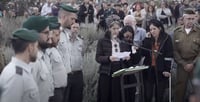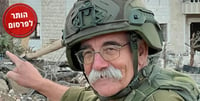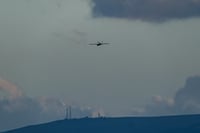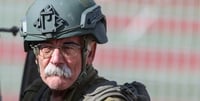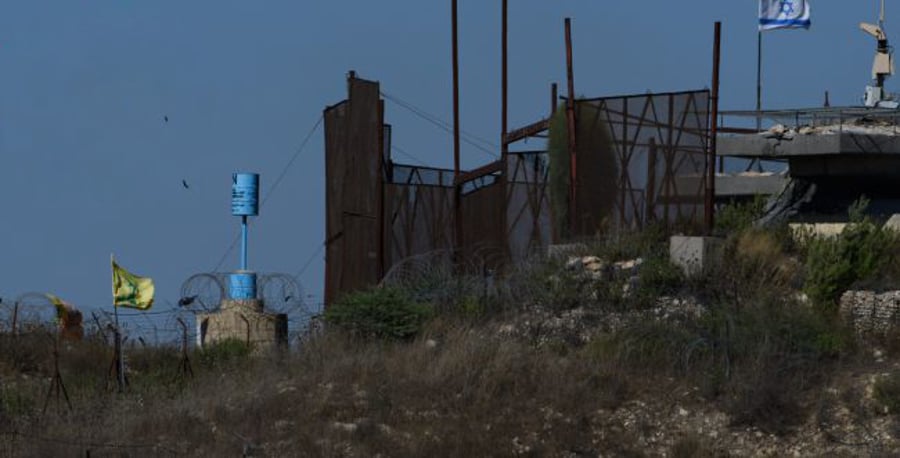
Unlike on the eve of the Yom Kippur war, this time the warning is plastered in huge letters on the wall, and the question is whether the top brass of the IDF will correct the deficiencies before it is too late.
The document written by a soldier who completed reserve duty in the northern border in recent months, part of which is published here for the first time, indicates a chain of deficiencies and flaws in the positions adjacent to the fence. His conclusion is that in the event of an attack by Hezbollah, the positions are not adequately prepared to face the threat.
The document, titled "The Strategic Intelligence Unit," narrates the firsthand experience of a soldier who carried out operational tasks on the border. It notes that while there are arrangements in place for dealing with minor attacks from Hezbollah, including abduction attempts and infiltrations, the strategic scenario suggests that if Hezbollah attempts to capture a significant settlement or IDF position, it could lead to a severe disaster.
The gaps that were uncovered for the soldier are on the verge of lawlessness – a shortage of ammunition, basic equipment, excessive reliance on technological means, neglect in maintaining the bases, and mainly in the operational readiness of the forces.
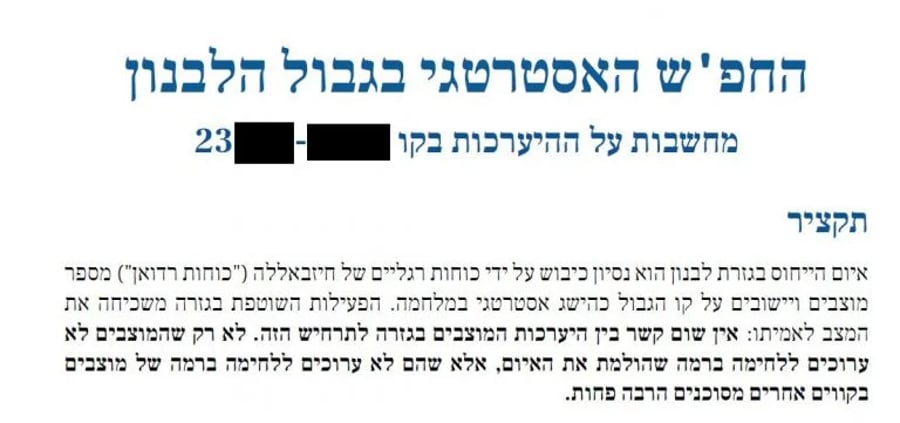
The threat - occupation of a position by Radwan force
The routine activity of a reserve battalion on the northern border consists of opening and closing roads, reinforcing positions, and primarily confronting the provocations of Hezbollah forces along the fence. These provocations often involve individuals dressed in civilian attire, posing as shepherds, demonstrators, or news photographers.
The main activity is countering abduction incidents, as it was in 2000 on Mount Dov and in 2006 in the central sector, an act that led to the Second Lebanon War, or countering infiltration incidents, as in the attack in Megido. According to the document, the forces in this mission are indeed capable of dealing with such situations to the best of their abilities.
The "Day of Judgment" scenario for the IDF is an entirely different event – which is also discussed in exercises and briefings – an event of an attack at the platoon or battalion level by Hezbollah's elite unit called "Radwan Force," aiming to capture a settlement or position and raise Hezbollah's flag over it.
Even Hezbollah knows that it is not capable of holding a position for an extended period, and the goal of the operation, beyond the significant number of casualties on the Israeli side, is to achieve the strategic objective of raising Hezbollah's flag on Israeli sovereign territory. Such an event has become a recurring pattern for Hamas in Operation "Protective Edge" ("Tzuk Eitan") in the attack on the Oz Stream position, and even before that, with the raising of Hezbollah's flag on the "Dla'at" position during the IDF's presence in South Lebanon before the withdrawal in '99.
The document's conclusion is that the positions, in their current state, are not prepared for such a strategic event.
No ammunition, no basic equipment
In the document, the soldier describes the gaps in the basic equipment level of the positions, from combat gear to medical supplies.
In a detailed and concise description, he portrays an inconceivable reality in which positions lacked heavy machine guns (MAGs) and grenade launchers. There was a shortage of grenades, missiles, grenade launchers, and both heavy and light ammunition. There were barely enough bullets for the soldiers' personal weapons.
The medical equipment was also shameful. There was a shortage of personal dressings, tourniquets, and the medics lacked full readiness for an entire month of operational activity on the border.
Furthermore, he lists failures and malfunctions in the vehicles – some of which were inoperative, and others arrived with low equipment levels. The communications system worked intermittently, and critical points had no reception. Due to communication issues, the ability to coordinate with the artillery units responsible for supporting the position and the fighters during operations was disrupted.
Everyone is in the line of malfunctions and indifference to the situation: from the brigadier general down to the observers at the border, through the armored fighters to the drivers.
The gap in the level of personal equipment between the reservists and the regulars was amazing.
"The soldier is the same soldier, the mission is the same mission, and the threat is the same threat, so the means should be the same means. A soldier doesn't enjoy the comforts of rear service conditions; therefore, the service conditions of a soldier should include a comfortable and lightweight helmet, not the cumbersome helmets from the Yom Kippur War that are still being supplied. Basic items like flashlights, canteens, bandages, and first aid equipment are not adequately provided to the soldier, and in general, the equipment supplied is very outdated, except for the vest. For the first time, a complete soldier's kit was provided, but even that was a used kit."
We have seen all these things with our own eyes, complained about them, discussed them among ourselves, and they were clear to us from the start, after a short period on the frontline. However, they are minor issues compared to the real problem. These are readiness issues directly related to the expected enemy activity – abduction events or infiltration attempts by terrorists. Given the deficient readiness state, we will struggle to cope as required due to the malfunctions that all of us have witnessed."
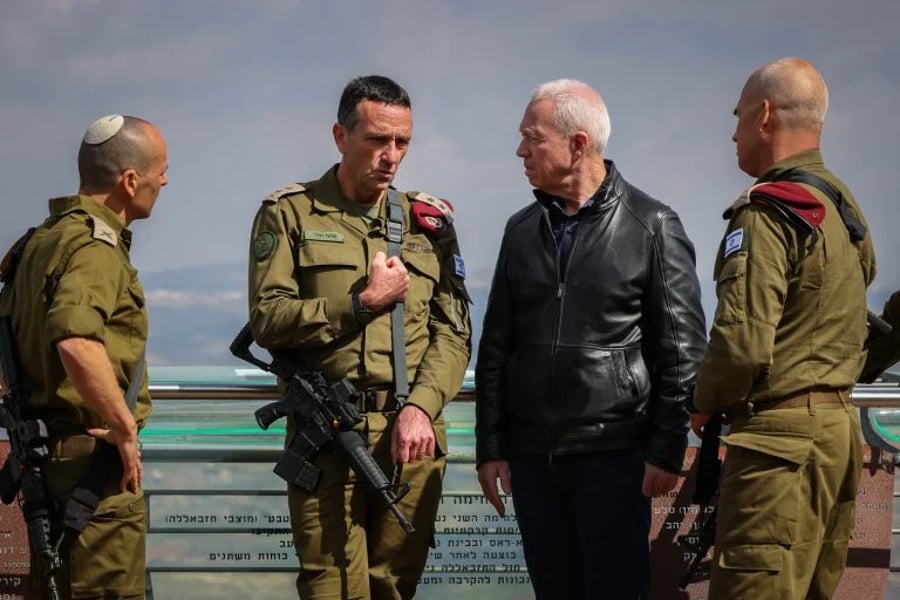
The outposts are neglected at a life-threatening level
If until now the deficiencies were in equipment that could be replenished within a few hours or days, the current state of the positions is already a ticking time bomb. The conclusion of that soldier is that the positions on the Lebanon border are not capable of managing any significant warfare.
In one of the border positions, in the event of a power outage, all systems were shut down. The cameras turned off, the fence stopped alarming, and even the emergency lighting inside the base was not activated. An entire position became blind for several hours. It is frightening to think about such a scenario in a situation where the soldiers would need to move in complete darkness against a group of terrorists equipped with full gear and night vision devices.
According to the document, the positions themselves are well-built. It is evident that they can withstand a significant missile attack. They have fortified positions and respectable combat capabilities. It's not that they need to be built from scratch, but rather that the existing resources are not being utilized effectively at all.
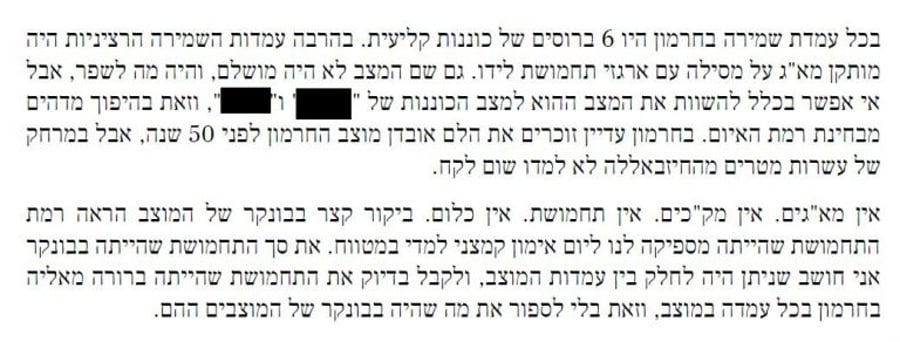
The shooting positions and combat ramps were concealed. In other words, the camouflage nets were spread there so intensely that, as fighters on the frontline, we were almost prevented from moving on these ramps at any cost. We had to walk above the ramps, hopping and reaching the shooting positions from above. Overall, it was evident that they were not prepared for reasonable combat management. Passing through them with a vest, weapon, helmet, and headgear was an extremely challenging task on its own, let alone efficiently managing combat and moving effectively between the positions.
And that's without even mentioning the realistic possibility of an underground attack through a Hezbollah underground tunnel and reaching the position from underground. Several tunnels were exposed on the Lebanon border and destroyed during Operation "Northern Shield," but who can guarantee that all the tunnels have truly been exposed?
The grim conclusion at the end of the document is that there is no real option for combat in the event of an attack by 50 Hezbollah fighters equipped with anti-tank missiles and mortar fire – the very scenario that the IDF has been warning about for years and discussing with the fighters themselves.
Ready for the previous war
The fighter summarizes the document in harsh words:
"On the surface, this situation resembles the classic problems of previous wars. During the Second Intifada, when the IDF was so satisfied with itself for conducting arrests in the alleys of Nablus, it forgot that it had long lost the ability to carry out battalion movements anywhere. We discovered this to our horror during the Second Lebanon War. Similarly, our brigade is too satisfied with its capabilities to quickly bring a tour with a camera for every Hezbollah member and to build a high fence along the border. Due to this overconfidence resulting from these abilities, we forgot that if they were ever to truly attack the positions, they are actually not prepared at all with even the basic infrastructures for combat.
The IDF explicitly tells soldiers who arrive for operational duty that a real threat of a foot attack by dozens of Hezbollah fighters stands above the positions. The strategic goal of Hezbollah is to occupy an IDF position to showcase it to the astonished world. However, the IDF does not even do the minimum elementary work to counter this possibility: to reinforce and prepare the existing positions along the border precisely for this scenario.
In a certain sense, all of this resembles the stories before the Yom Kippur War. Reserve soldiers arrive at the frontlines and realize that the balance of forces in the case of war is ten to one against us. The threat is known, the gap is known, and it will be alright. Unlike the Yom Kippur War, the likelihood of Israel being occupied by Hezbollah is not particularly high, but the likelihood that in their current state, the positions on the frontline won't withstand a serious attack by Hezbollah is...a major concern on the table."
The IDF: The document was read and the claims arising from it were examined very carefully
The document was written by the soldier a few weeks ago and was passed for review and evaluation to his comrades in the unit and to the officers. Many soldiers and officers in the unit and within the command chain read the document, discussed it, and fully agreed with the emerging picture from it. The document was also passed to the Division Headquarters, Brigade Commander, and Northern Command Commander. Simultaneously, it was forwarded to members of the Knesset so that they could pass it on to the members of the Knesset's Foreign Affairs and Defense Committee.
The document was also sent to the State Comptroller, the Security Establishment Inspector, and the IDF Colleges Forum, where it caused a great stir. Apparently, as a result of this, State Comptroller Matanyahu Engelman conducted a surprise visit to the positions on Mount Dov and the Galilee Formation three weeks ago – the findings of which are expected to be published in a report in the coming months.
It is not known whether discussions were held involving the Chief of Staff regarding the issues raised in the document and to what extent the deficiencies presented in it were addressed and corrected.
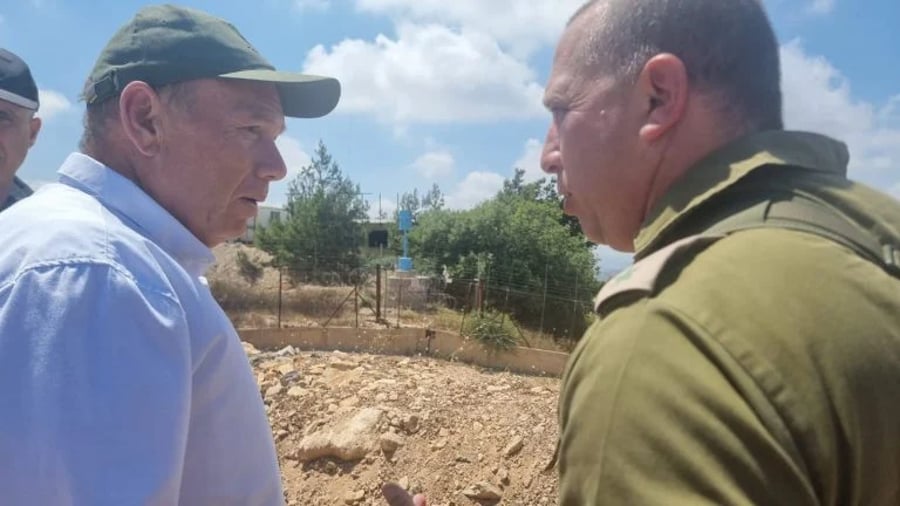
The IDF's response is as follows: "The claims mentioned in the document are known. The document was read by all relevant parties, and the allegations raised in it have been thoroughly examined.
In the division, several visits are made throughout the year regarding relevant issues, and the lessons learned are implemented and integrated.
As for operational plans, we do not address them as a matter of policy."

